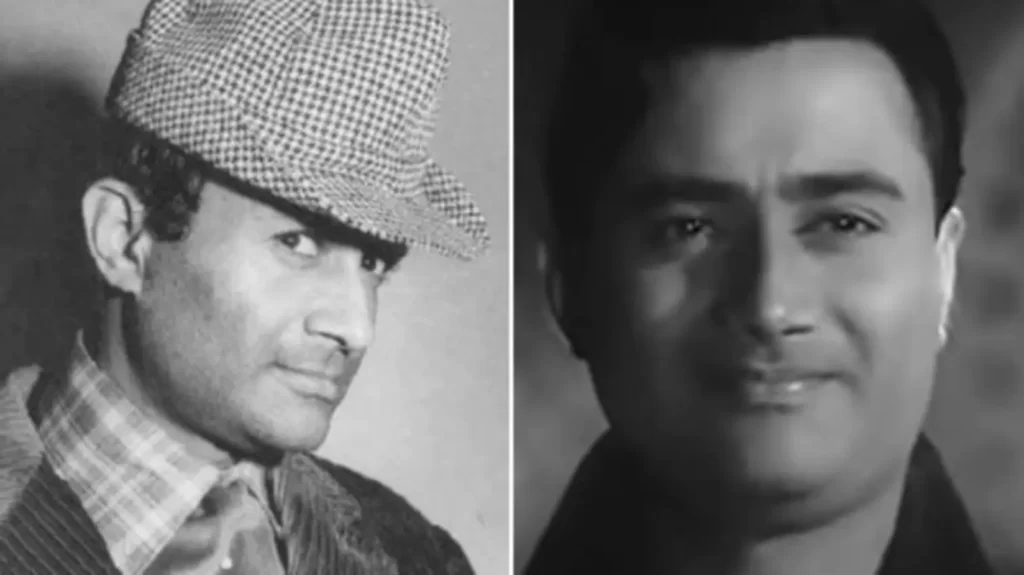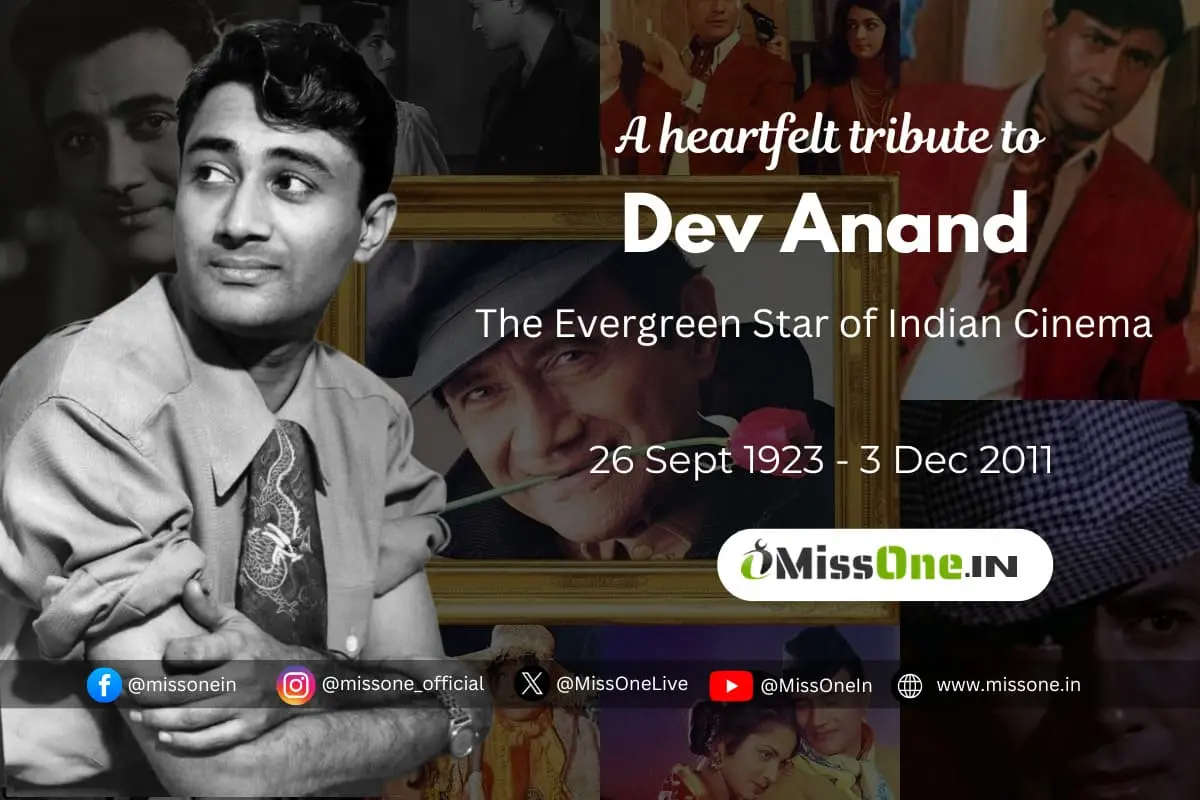Introduction – Who Was Dev Anand and Why This Tribute Matters
In the grand mosaic of Indian cinema, few names shine as brightly and eternally as Dev Anand. A man of charm, grace, and cinematic brilliance, Dev Anand was not just a film actor he was an institution. With a career spanning over six decades, he became the heartthrob of millions and a beacon of modern Indian filmmaking. This Tribute to Dev Anand is more than just a recollection of his contributions; it is a heartfelt celebration of a man who shaped the golden era of Bollywood and left behind an inspiring legacy that continues to influence generations.
Born during the British Raj and rising to fame in post-independence India, Dev Anand personified hope, change, and creativity. His inimitable style, positive energy, and progressive narratives brought fresh air to Indian cinema. As we look back at his life and journey, let us remember the magic he created on screen and the values he lived by off screen.
Early Life – From Dharamdev Pishorimal Anand to Dev Saab
Dev Anand was born as Dharamdev Pishorimal Anand on September 26, 1923, in Gurdaspur, Punjab, British India. He was the third of four sons in a well-educated family. His father, Pishorimal Anand, was a respected advocate, while his siblings went on to achieve success in their respective fields most notably, his elder brother Chetan Anand, a filmmaker, and younger brother Vijay Anand, a celebrated director and screenwriter.
Dev Anand’s early years were spent in Lahore (now in Pakistan), where he completed his schooling and later graduated in English Literature from Government College, Lahore. Even in those formative years, Dev displayed a keen interest in reading, theater, and the arts. The socio-political turbulence of the time and the rise of Indian nationalism had a deep impact on him. After moving to Bombay (now Mumbai), Dev initially worked in the military censor’s office but soon realized that his heart belonged to cinema.
Career Highlights – From Humble Beginnings to Bollywood Legend
Dev Anand’s film journey began in the 1940s, a time when India’s film industry was still finding its identity. His first break came with the film “Hum Ek Hain” in 1946, but his true rise to stardom came with “Ziddi” in 1948. From that moment on, Dev never looked back.
He co-founded Navketan Films in 1949 with his brother Chetan Anand. This banner would go on to produce some of the most path-breaking and iconic films in Indian cinema. Dev Anand became synonymous with romantic charm, social reform narratives, and experimental storytelling.
Among his most memorable films are:
- Baazi (1951) – A crime thriller that set the tone for Bollywood’s noir genre.
- Guide (1965) – An adaptation of R.K. Narayan’s novel, this film showcased Dev in a powerful, unconventional role that won national and international acclaim.
- Jewel Thief (1967) – A stylish suspense thriller that redefined crime cinema.
- Johny Mera Naam (1970) – A blockbuster that combined action, drama, and romance.
Through the decades, Dev remained a relevant and progressive filmmaker. Even in the 1970s and 1980s, when the industry landscape was rapidly changing, he continued to experiment with themes and talents.

Iconic Contributions – Films That Shaped Indian Cinema
This Tribute to Dev Anand would be incomplete without highlighting his vast and iconic contributions to Indian cinema. Dev Saab was not only a brilliant actor but also a visionary director and producer. His films often addressed contemporary issues, from corruption and unemployment to gender equality and freedom of expression.
“Guide” (1965)
This was perhaps his most iconic work. Dev Anand played Raju, a flawed yet deeply human character. The film’s treatment of spirituality, love, and redemption was way ahead of its time. It received the Filmfare Award for Best Film and was India’s official entry to the Academy Awards.
Launching New Talent
Dev had an unmatched eye for spotting fresh talent. He introduced Zeenat Aman in Hare Rama Hare Krishna (1971), which broke taboos by dealing with drug addiction and the hippie culture. He also helped launch the careers of actors like Jackie Shroff, Tina Munim, and many others.
Style and Persona
Dev Anand was a trendsetter. His puffed hair, scarves, and fast-talking style became the stuff of legend. He consciously avoided repeating his costumes and was known to never wear black on screen, fearing it would attract excessive female attention a testament to his popularity!
Awards and Recognition – Honoring a Lifetime of Excellence
Dev Anand’s contributions did not go unnoticed. Over his lifetime, he received numerous national and international accolades. Some of the most notable awards and honors include:
- Padma Bhushan (2001) – India’s third-highest civilian award.
- Dadasaheb Phalke Award (2002) – The highest award in Indian cinema for lifetime achievement.
- Filmfare Lifetime Achievement Award (1991)
- Special honors at international film festivals including those in Toronto, New York, and France.
He was not only respected in India but also admired globally. Dev Anand represented Indian cinema with dignity and grace on world platforms long before global recognition became common.

Personal Values and Legacy – The Man Behind the Stardom
Behind the glitz and glamour was a man of substance. Dev Anand stood for creativity, integrity, and optimism. He believed in progress, both in storytelling and society. He often said, “I never let the child inside me die,” which reflected in his relentless passion for cinema even in his 80s.
Dev was known for his discipline never missing a day of writing or planning, even late in life. He maintained a positive attitude toward failure and criticism. When asked about flops, he would smile and say, “You win some, you learn some.”
Dev Anand’s legacy is also evident in how he mentored newcomers, supported social causes, and stayed away from political controversies despite being a public figure. He continued making films till his last breath, with his final project, “Chargesheet” (2011), released just before his death.
He passed away in London on December 3, 2011, leaving the world a little less charismatic. But true to his spirit, Dev Anand never truly left his films, philosophies, and flamboyance continue to live on.
Conclusion – Why Dev Anand Will Always Be Remembered
As we draw this Tribute to Dev Anand to a close, we are reminded of why he remains one of the most beloved and enduring icons of Indian cinema. Dev Anand was more than an actor; he was an eternal optimist, a relentless dreamer, and a pioneer who gave Indian cinema some of its most memorable moments.
From Baazi to Guide, from Hum Dono to Hare Rama Hare Krishna, his legacy is stitched into the very fabric of Bollywood. He inspired audiences not just through the characters he played but through the way he lived with passion, purpose, and unwavering belief in progress.
Let us remember Dev Saab not with sorrow, but with a smile the kind he always wore, the kind he brought to millions of faces.
If you’ve ever been moved by his work or his life, share this tribute with fellow fans. Leave a comment with your favorite Dev Anand memory or movie we’d love to hear your stories.
Related Reads:
- A Heartfelt Tribute to Raj Kapoor
- Lata Mangeshkar Death Anniversary: Biography, Life Story, Songs, and Legacy
External Sources:
Dev Anand lives on—not just in films, but in the timeless joy he gifted us.

